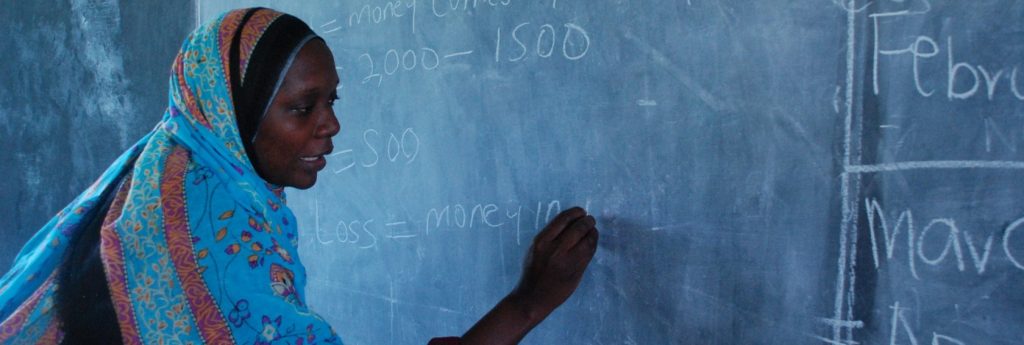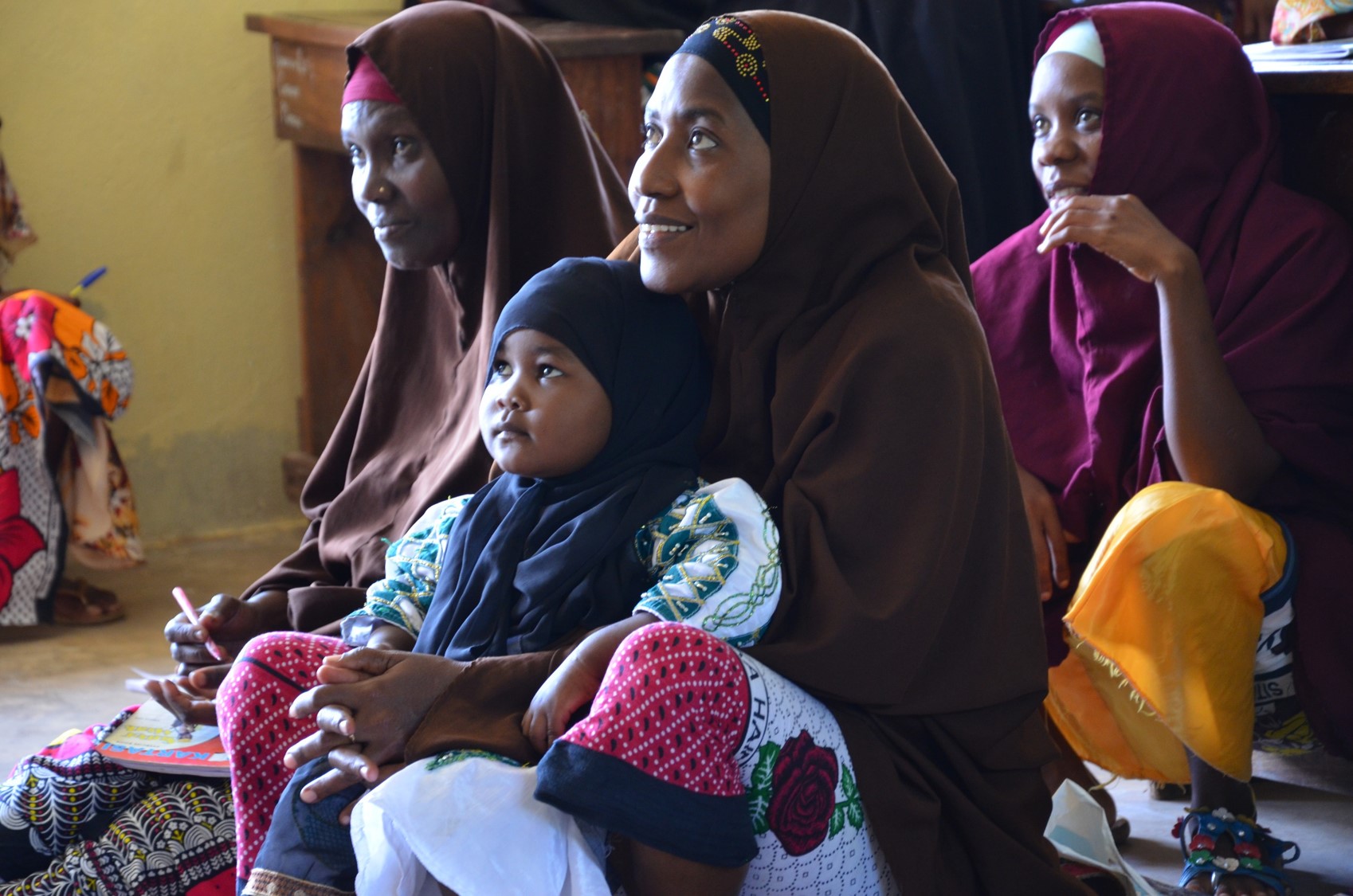
Mission
The Pangea Network (TPN) is an international nonprofit dedicated to empowering motivated individuals in Kenya and the United States with the knowledge, skills and an ongoing network of support in order to achieve their dreams and make positive, life-changing contributions in the communities where they live.
Life Challenges of the Women Served
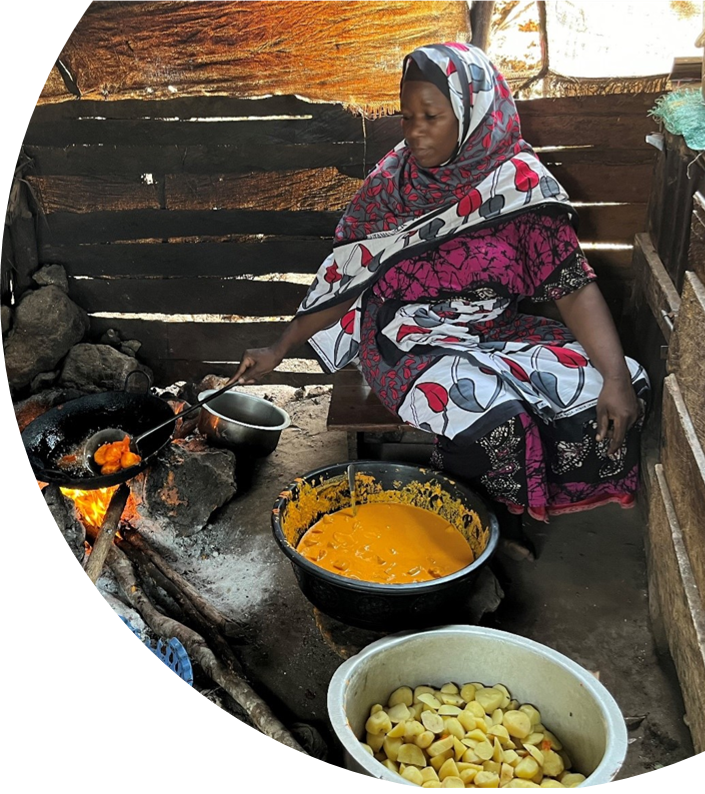 Thirty-six percent of Kenyans live below the international poverty line, with women being disproportionately impacted due to basic gender inequality in the country. Women suffer higher rates of poverty, lack equal access to a comprehensive education, and are therefore unaware of their rights under Kenyan law. They hold much lower rates of land ownership and have limited access to reproductive health education and services, all of which limits their ability to earn a proper income and make independent, informed decisions for themselves and their family.
Thirty-six percent of Kenyans live below the international poverty line, with women being disproportionately impacted due to basic gender inequality in the country. Women suffer higher rates of poverty, lack equal access to a comprehensive education, and are therefore unaware of their rights under Kenyan law. They hold much lower rates of land ownership and have limited access to reproductive health education and services, all of which limits their ability to earn a proper income and make independent, informed decisions for themselves and their family.
Gender inequality remains the most pervasive inequality – and one that intersects with other forms of inequality based on age, ethnicity, race, disability, caste, religion, sexual orientation, or geographical location.
Access to education is critical for gender equality. According to research from the World Bank, 65 percent of women with primary education or less globally are married as children, lack control over household resources, and condone wife beating, compared with 5 percent of women who finish high school. In Kenya, only 25 percent of females over age 25 have a secondary education. This severely limits their employment opportunities. Kenyan families earning less than $2 US a day, and barely able to put food on the table, still must pay between $1,500 and $3,000 US if they want to send their children to school. Young women face additional challenges when making their way through the school system. Families invest less money in girls’ education, with many Kenyans sharing traditional views about the role of women in society, seeing them as suited solely for marriage, childbirth, and raising a family.
Most Kenyans live in rural areas and lack access to clean water and adequate health care. Therefore, poor health and diseases like malaria and HIV/AIDS have increased the poverty of the population. Traditional practices governing land and livestock ownership, access and control over land, and benefits accruing to what the land produces tend to favor men compared to women. This disadvantages women in accessing credit, especially when collateral is required. In 2004 only one percent of land titles in Kenya were held by women and 5 – 6 percent were owned jointly. While more than 80 percent of Kenyan women are engaged in smallholder farming, they have access to less than 10 percent of available credit.
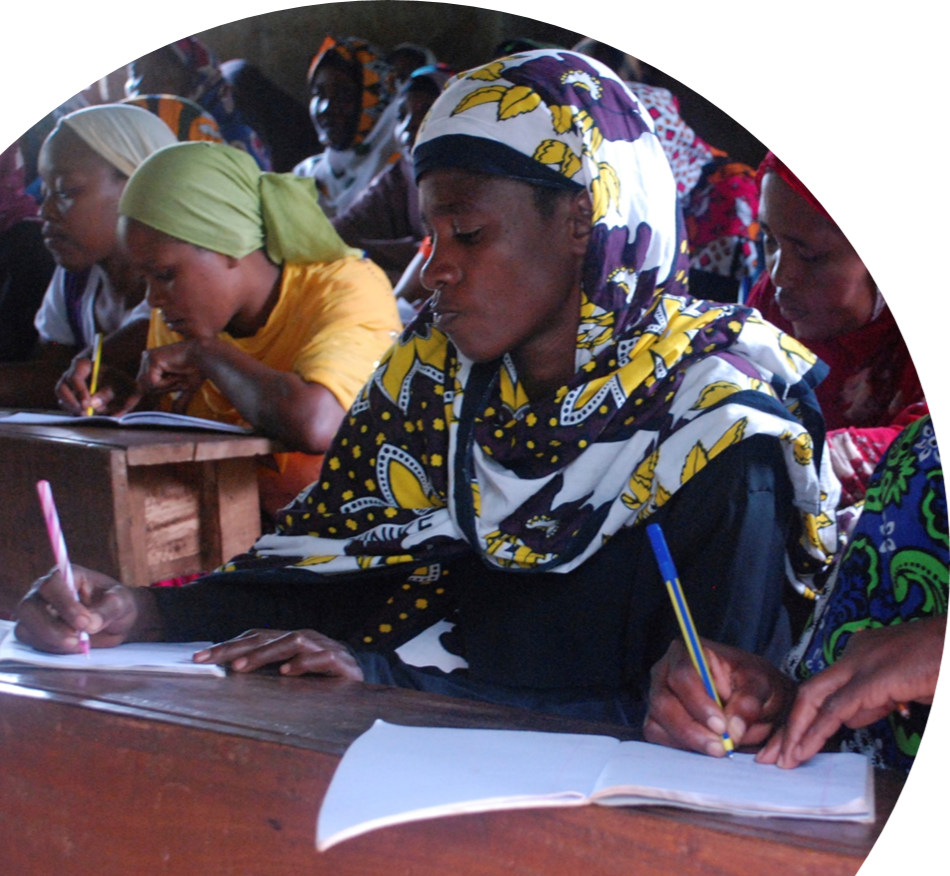 The 2016 Human Development Report (HDR), published by the United Nations Development Program, focuses on how human development can be ensured for everyone – now and in the future. It starts with an account of the hopes and challenges of today’s world, envisioning where humanity wants to go. The vision draws from and builds on the 2030 Agenda for Sustainable Development that the 193 member states of the United Nations endorsed in 2015 and the 17 Sustainable Development Goals (SDGs) the world has committed to achieve.
The 2016 Human Development Report (HDR), published by the United Nations Development Program, focuses on how human development can be ensured for everyone – now and in the future. It starts with an account of the hopes and challenges of today’s world, envisioning where humanity wants to go. The vision draws from and builds on the 2030 Agenda for Sustainable Development that the 193 member states of the United Nations endorsed in 2015 and the 17 Sustainable Development Goals (SDGs) the world has committed to achieve.
Kenya’s rankings include
- Human Development Index (HDI) 146 out of 188
- Inequality-adjusted Human Development Index (IHDI) 115 out of 151
- Gender Development Index (GDI), 127 out of 160
- Gender Inequality Index (GII), 135 out of 159
- Multidimensional Poverty Index (MPI), 147 out of 187.
The Project
The Pangea Network has been working to empower women and youth through life and business skills education and access to financial resources in Kenya for over 15 years. Its program provides training and small business revolving funds to women living in extreme poverty, leading to better health, rights awareness, more decision-making power, greater earning potential and a dignified standard of living. The Kenyan Women’s Network Training of Trainers (KWN TOT) project will expand the number of new women reached annually from an average of 115 women per year to 350 women within one year.
The KWN TOT project equips traditionally marginalized women with skills, tools, and resources to become active members, leaders, mentors, and entrepreneurs. The impact of the trainings is seen in the way a woman is valued in her family – how she participates in decision making, the increased income she is bringing home, the more children she is educating – and the recognition from her community that she is knowledgeable and equipped to run a successful business. All of these elements add up to women being seen for all they have to offer in the progress and evolution of their community and country.
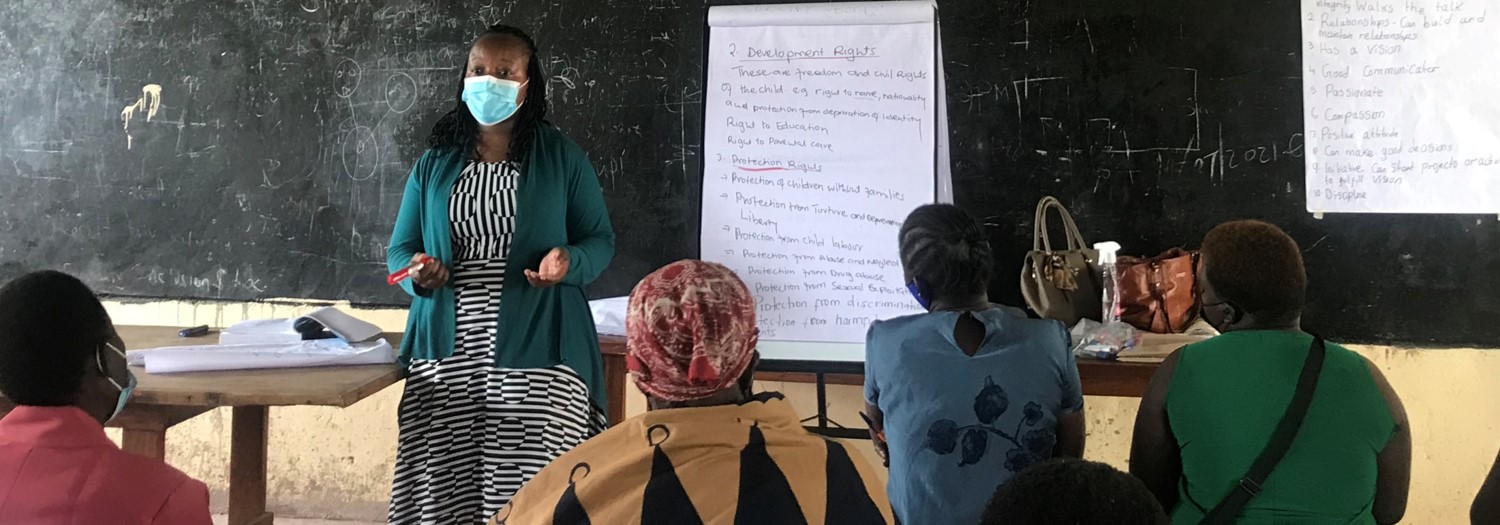
Short-term benefits of the project are that within 12 months, 15 Trainers will have been trained across six counties and will have trained roughly 350 women from their communities. Those participants will have an increase in basic knowledge of critical-life skills through training in human rights, leadership, and personal development. They will have an increase in basic livelihood knowledge and skills through training in basic business skills and bookkeeping, and improved overall health and nutrition levels through training in personal hygiene, basic nutrition, and reproductive health.
Improved income levels and living standards are achieved through access to revolving funds for small business growth. This includes an average decrease in poverty likelihood from 25.4 percent to 7.8 percent.
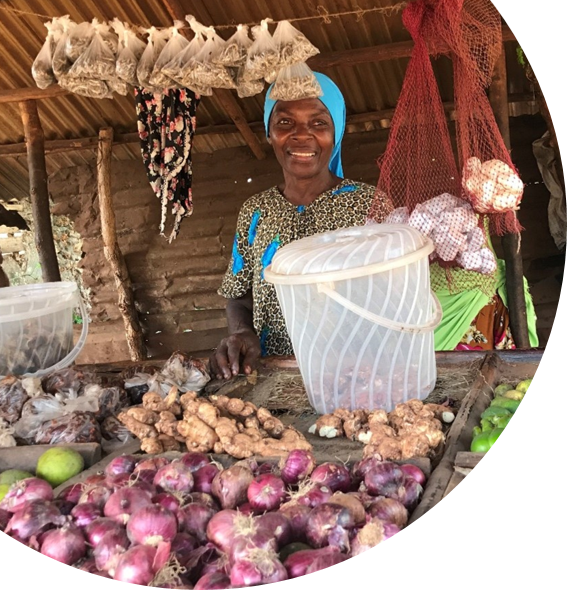 The KWN TOT project will take 15 women who have already completed the KWN program through an extensive training process to become paid trainers to women in their communities, expanding empowerment and impact from within. After their training, the women will work with TPN staff to vet community-based groups (cooperatives) to engage in the KWN program. TPN has waiting lists of groups that wish to partner with the organization to receive this training. The vetting process will start with those groups on the waiting list, along with input from the new trainers from each area. Once cooperative selection is complete, with mentorship and supervision by TPN staff, these 15 new trainers will take 350 women through the six-month KWN training program, earning a stiped for each training they teach.
The KWN TOT project will take 15 women who have already completed the KWN program through an extensive training process to become paid trainers to women in their communities, expanding empowerment and impact from within. After their training, the women will work with TPN staff to vet community-based groups (cooperatives) to engage in the KWN program. TPN has waiting lists of groups that wish to partner with the organization to receive this training. The vetting process will start with those groups on the waiting list, along with input from the new trainers from each area. Once cooperative selection is complete, with mentorship and supervision by TPN staff, these 15 new trainers will take 350 women through the six-month KWN training program, earning a stiped for each training they teach.
The program will include:
- education workshops, which include basic human rights, leadership, basic business skills, bookkeeping, personal development, hygiene, health, nutrition, and reproductive health,
- micro-enterprise creation and growth, which includes proposals for individual or group projects, cooperative lending process and procedures training, revolving fund disbursement and monitoring (two funding cycles of 18 months each), and
- follow-up trainings once per quarter, which include first aid, conflict resolution, and recaps of any of the original trainings as needed.
The direct beneficiaries are marginalized Kenyan women ranging in age from 19 – 80, with the average age being 44 years old. Of the women TPN has trained, roughly 924 of the women had only been able to attain a primary school education or less, with 286 of those having had no formal education at all. The average daily income is initially less than $2 per day. These women are members of existing community-based groups, and Pangea partners with these groups (average of 25 women per group) for roughly a four-year period.
The people indirectly impacted by this project will be the children and spouses of these women and extended family members and neighbors. TPN’s latest surveys of women in its program show that they have, on average, four children plus other family members in their care, indicating that the total indirect impact (365 x 5.5) is roughly 2,000.
Direct Impact: 350; Indirect Impact: 2,000
UN Sustainable Development Goals
![]()
![]()
![]()
![]()
![]()
![]()
Questions for Discussion
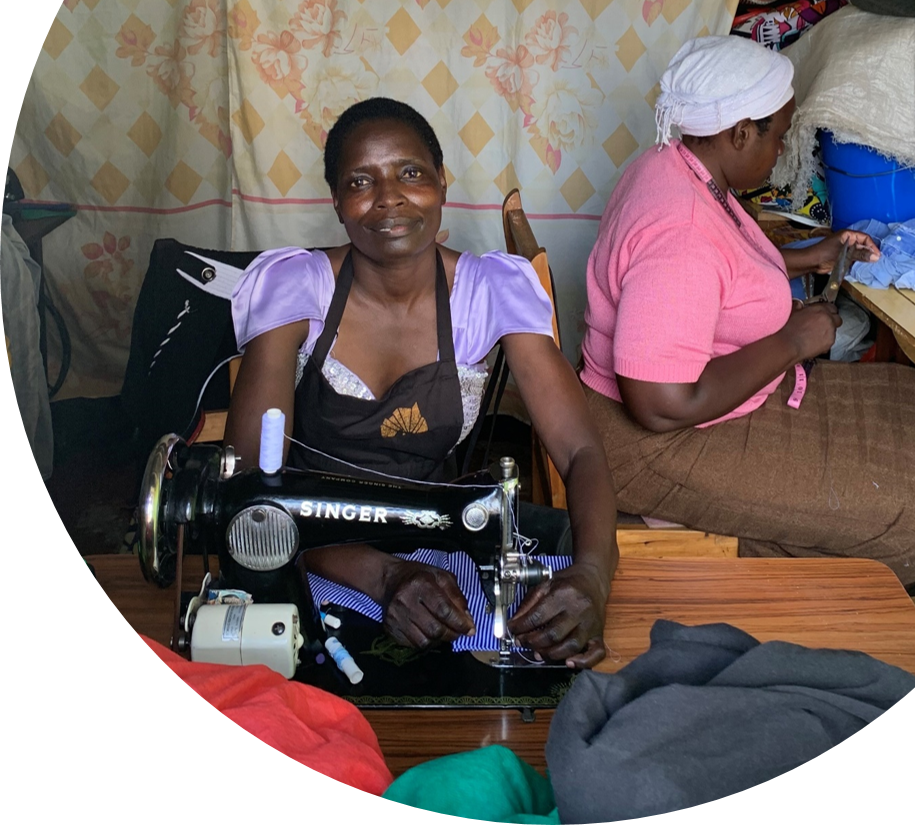 Local cooperatives offer more than collective economic benefit. How might participation benefit women in ways beyond their business endeavors?
Local cooperatives offer more than collective economic benefit. How might participation benefit women in ways beyond their business endeavors?- With an average age of 44 for participants, how do you think this project might reach across generations?
- In what ways do you think this project aligns with the mission of Together Women Rise?
How the Grant Will be Used
Together Women Rise’s grant of $50,000 will help fund the following:
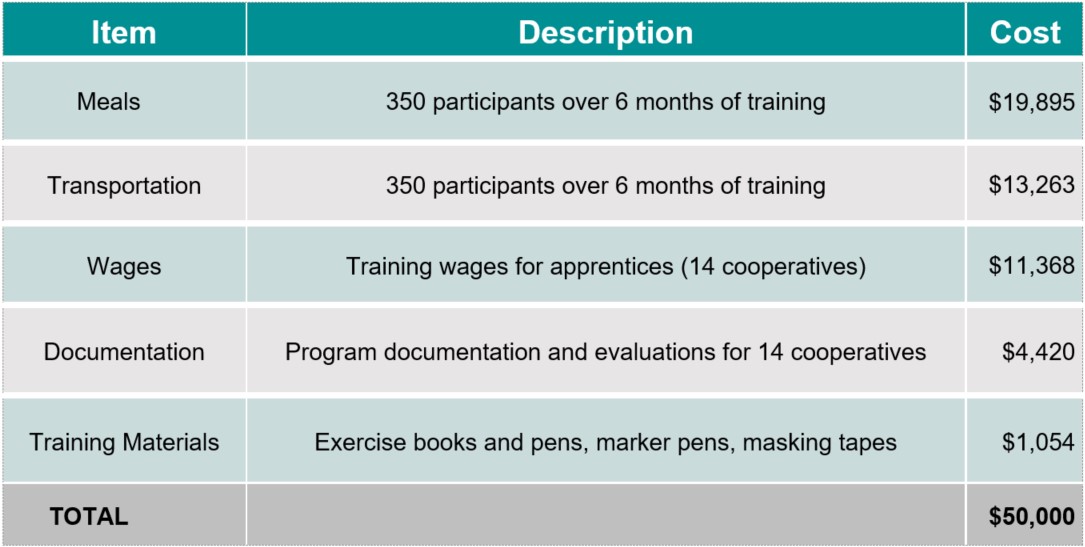
Why We Love This Project/Organization
The Pangea Network’s Train the Trainer model (TOT) is well-planned, streamlined, efficient, and sustainable. The presence of proximate trainers strengthens the local cooperatives that have already shown significant increases in weekly impact and savings levels for participating women. There is an impressive waiting list for cooperatives. Most important is the targeting and participation of middle-aged women, who are using the holistic training as a springboard for growing their businesses and making the most of new opportunities.
Evidence of Success
The KWN program has developed and grown over the past 14+ years to be impactful in the following ways:
- 1,432 Kenyan women have graduated from Pangea’s Educational Program.
- 667 small businesses and four group animal husbandry projects have been created.
- 744 women have been trained in reproductive health.
- After human rights training, two maternity wards were built in a coastal district due to the women demanding services.
- 432 percent average increase in cooperative savings.
Weekly average income increased by 89 percent for cooperatives in a two-year period.
Voices of the Girls
“Through Pangea, I obtained a loan and planted Cassava. I sold the harvest and used the proceeds to cement my house and install electricity. Pangea has brought a big change in my life.” – Amina, Amkeni Cooperative
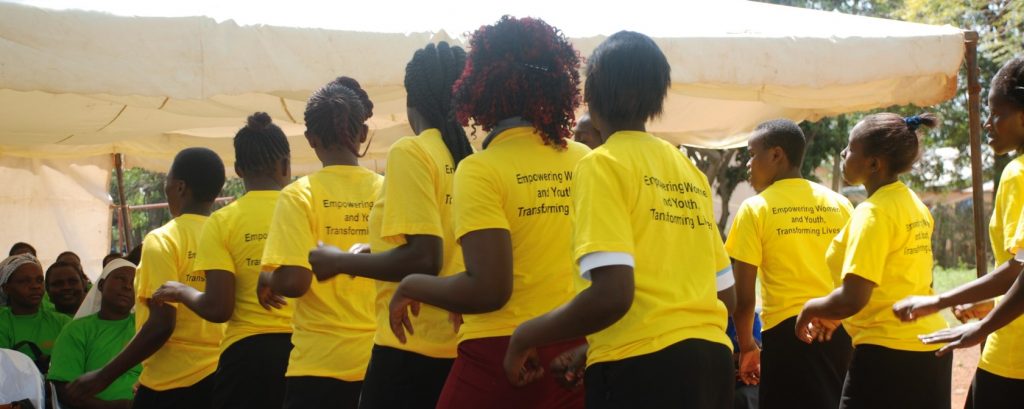
“I took a loan from my group courtesy of the Pangea Network and used it to purchase stock for my kiosk. I used the additional profit from my business to farm maize, beans, and vegetables. My farm feeds me and I no longer spend money to buy those items.” – Beatrice, Tazama Women Group
“The business skills lessons from Pangea gave me clarity and helped me to understand how to better run my business and keep records. I am now a better planner and business lady. I used my loan to purchase fabric which improved my sales. Before this, my customers had to purchase fabric elsewhere which was inconvenient and at times lose sales.” – Sauda, a Pangea Alumni in Kwale County Kenya.
“After undertaking the Pangea empowerment training, I learnt the importance of running a business with set priorities. I moved my business from my home to a stall at the market allowing me to have more customers. My earnings improved and am able to contribute to paying school fees for my children as well as other needs such as food and clothing.” – Pamela, Agruppa Cooperative.
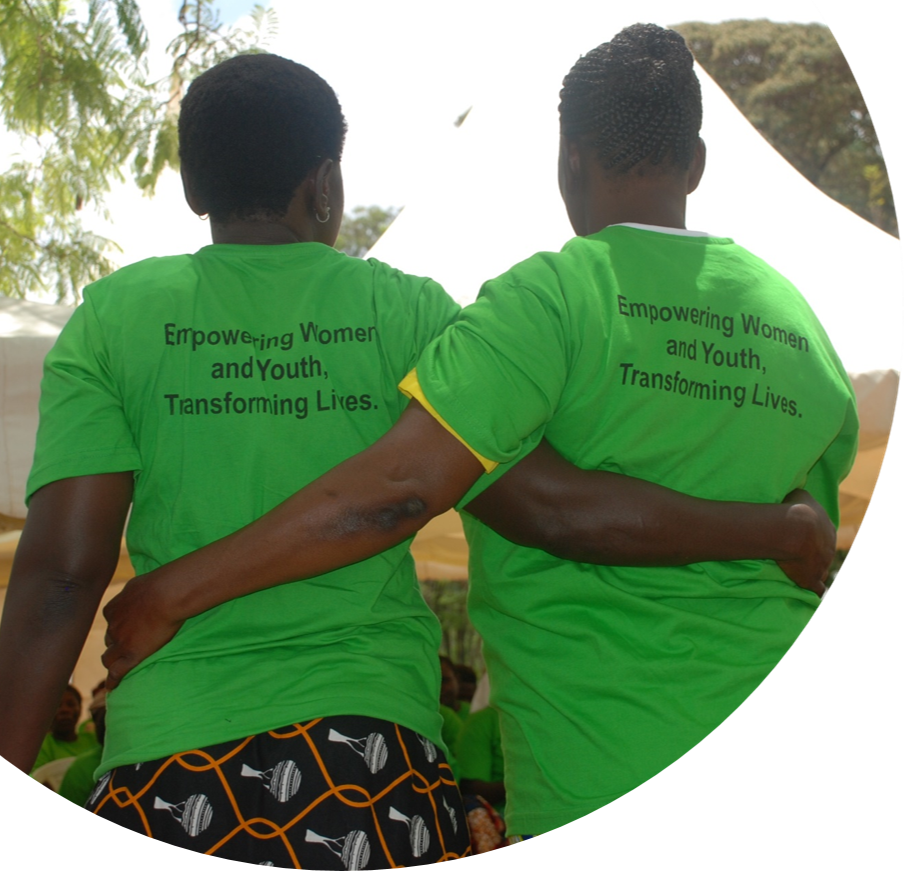 “The Pangea training opened my mind to the opportunities in my community. The loans we received made it possible to greatly expand my businesses. I don’t struggle to provide for my family as I used to. I am grateful to Pangea for holding my hand throughout the process.” – Nazo, Tawakal Cooperative
“The Pangea training opened my mind to the opportunities in my community. The loans we received made it possible to greatly expand my businesses. I don’t struggle to provide for my family as I used to. I am grateful to Pangea for holding my hand throughout the process.” – Nazo, Tawakal Cooperative
“The Pangea Empowerment Program came at the right time for me, and I would wish it for other women as this program has truly changed my life and that of my family.” – Immaculate, Od Wadu Cooperative
“Ever since I went through the training, I feel that I have a lot of responsibility to help others around me! I am no longer ashamed about discussing reproductive health. I have shared everything I learned about reproductive health with my neighbors, church, community, children, and friends.” – Caroline, Agruppa Cooperative
“I would like to urge fellow women to use all resources within their reach, such as the Pangea empowerment program, to move ahead in life and empower others to do the same.” – Monica, Ndere Cooperative.
About the Organization
The Pangea Network (TPN) was founded in 2005 by Nicole Minor, with the organization’s first activities focused on women’s economic empowerment in Jerusalem. TPN also introduced its first US education programs to human geography classes in local high schools with the purpose of inspiring students to become more globally minded and to stimulate a desire to become future leaders of positive change in their community.
In 2007, after several trips to Kenya, TPN began its first Kenyan Women’s Network (KWN) program with 70 HIV+ women in partnership with Dorothy Ombajo, a local human rights attorney. The women were trained in home-based care, small business skills, bookkeeping, savings, rights awareness, leadership, and basic health education. This set the foundation for the program which has now reached over 1,400 women across multiple geographic areas in Kenya.
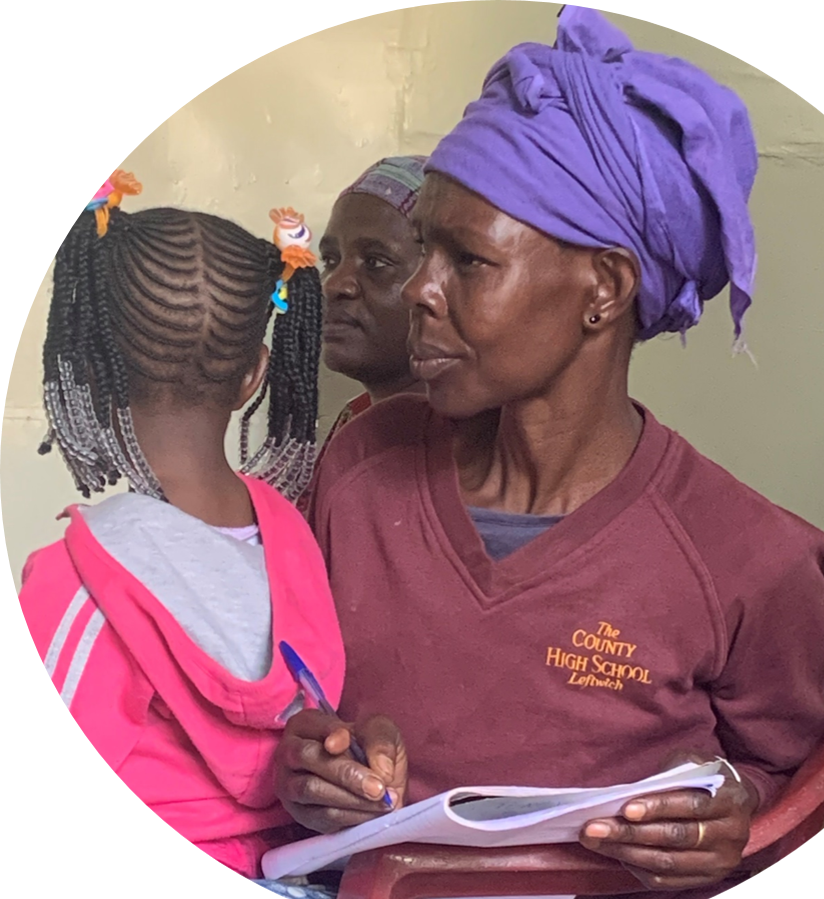 In 2009, Pangea established an office in Nairobi, began the Student Sponsorship Program, and began focusing all its international efforts in Kenya.
In 2009, Pangea established an office in Nairobi, began the Student Sponsorship Program, and began focusing all its international efforts in Kenya.
In the fall of 2012, Pangea launched the U.S. Young Women’s Leadership Challenge Program (YWLC) which focuses on creating equipped, confident, service-minded leaders and globally informed young women in Texas.
In 2021, Pangea started a major effort to expand its reproductive health education to Kenyan adolescent girls through a new initiative called Tubonge Uwazi Dada Initiative (TUDAI), which means “let us be transparent.” This includes the promotion of human rights related to Sexual Reproductive Health (SRH), providing information and services that enable adolescents to make informed decisions about their bodies and sexual activities. This program also equips parents and guardians with SRH knowledge and communication skills, and encourages open and appropriate dialogue around what is happening in the community, defining the crisis, and how the community can fix the situation.
Where They Work
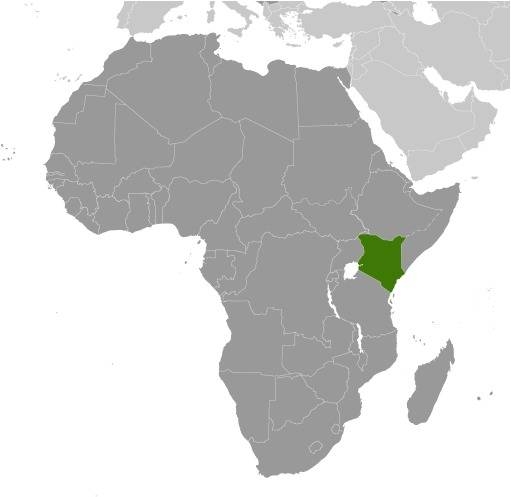
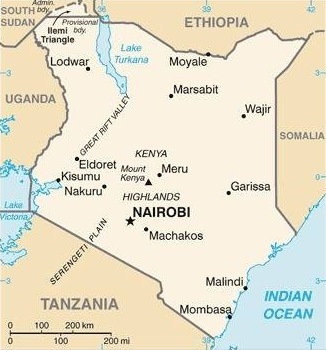
Kenya is located in Eastern Africa, bordering the Indian Ocean, between Somalia and Tanzania. Its population of 55,864,655 (2022 est.) is heavily concentrated in the west along the shore of Lake Victoria. Other areas of high density include the capital of Nairobi and in the southeast along the Indian Ocean coast.
Kenya has experienced dramatic population growth since the mid-20th century as a result of its high birth rate and its declining mortality rate. More than 40 percent of Kenyans are under the age of 15 because of sustained high fertility, early marriage and childbearing, and an unmet need for family planning. Kenya’s persistent rapid population growth strains the labor market, social services, arable land, and natural resources.
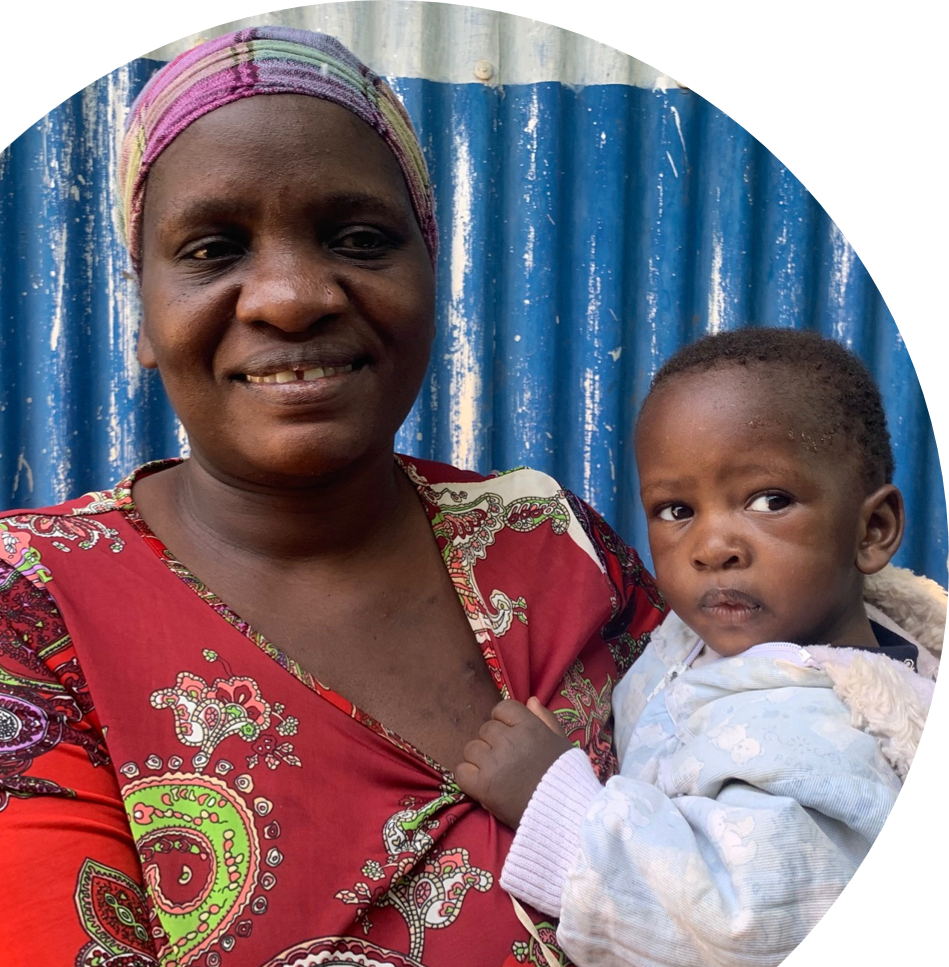 Agriculture remains the backbone of the Kenyan economy, contributing one-third of GDP. About 75 percent of Kenya’s population work at least part-time in the agricultural sector, including livestock and pastoral activities. Over 75 percent of agricultural output is from small-scale, rain-fed farming or livestock production. Currently, an exceptional shortfall in aggregate food production and supplies due to drought conditions is causing high food insecurity. In the March to June 2022 period, about 4.1 million people are estimated to have been severely food insecure; this figure is about 40 percent higher than the same time last year. Severe rainfall deficits during the March – May 2022 rainy season have impaired pasture regeneration in several central, northern, and eastern pastoral and agro-pastoral areas. As of late July 2022, between 25 percent and more than 85 percent of the grassland was affected by severe drought, reflecting consecutive poor rainy seasons since late 2020, which have affected both crop and livestock production. Prices of maize are at high levels across the country due to reduced availability and high fuel prices inflating production and transportation costs. As the June – September 2022 dry season started, forecasts pointed to a poor October – December 2022 “short rains” season. Food insecurity conditions are expected to further deteriorate.
Agriculture remains the backbone of the Kenyan economy, contributing one-third of GDP. About 75 percent of Kenya’s population work at least part-time in the agricultural sector, including livestock and pastoral activities. Over 75 percent of agricultural output is from small-scale, rain-fed farming or livestock production. Currently, an exceptional shortfall in aggregate food production and supplies due to drought conditions is causing high food insecurity. In the March to June 2022 period, about 4.1 million people are estimated to have been severely food insecure; this figure is about 40 percent higher than the same time last year. Severe rainfall deficits during the March – May 2022 rainy season have impaired pasture regeneration in several central, northern, and eastern pastoral and agro-pastoral areas. As of late July 2022, between 25 percent and more than 85 percent of the grassland was affected by severe drought, reflecting consecutive poor rainy seasons since late 2020, which have affected both crop and livestock production. Prices of maize are at high levels across the country due to reduced availability and high fuel prices inflating production and transportation costs. As the June – September 2022 dry season started, forecasts pointed to a poor October – December 2022 “short rains” season. Food insecurity conditions are expected to further deteriorate.
A closer look at the importance of adult education
The United Nations has declared education as a human right. For individuals, education promotes employment, earnings, health, and poverty reduction. Globally, there is a 9 percent increase in hourly earnings for every extra year of schooling. For societies, it drives long-term economic growth, spurs innovation, strengthens institutions, and fosters social cohesion. Since World War II, research studies have shown that there is a positive correlation between gross national product (GNP) and societies’ rates of literacy. Making effective investments in education is critical for developing the human capital that will end extreme poverty. However, most countries missed the UN’s target of a 50 percent improvement in levels of adult literacy by 2015.
Developing countries are making major progress in getting children into the classroom, and more children worldwide are now in school. Those parts of the world where adult learning and education have been promoted show improved healthful habits, higher life expectancy, a significant reduction in lifestyle diseases, better pay due to improved work skills, and a larger pool of more informed employees for employers to recruit from. However, adult learning and education receives only a small proportion of public funding: 42 percent of countries spend less than 1 percent of their public education budgets on adult education.
The aim of adult learning and education is to equip people with the necessary capabilities to exercise and realize their rights and take control of their destinies. It promotes personal and professional development, thereby supporting more active engagement by adults with their societies, communities, and environments. The Pangea Network’s KWN TOT project does just this. Its direct beneficiaries are marginalized Kenyan women, many of whom are middle-aged. Upon completion of intensive training on all materials, TOT participants will move on to teach these lessons to vetted cooperatives, and will earn a stipend for each training they teach. The program provides training and small business revolving funds to women living in extreme poverty, leading to better health, rights awareness, more decision-making power, greater earning potential, and a dignified standard of living.
Source Materials
